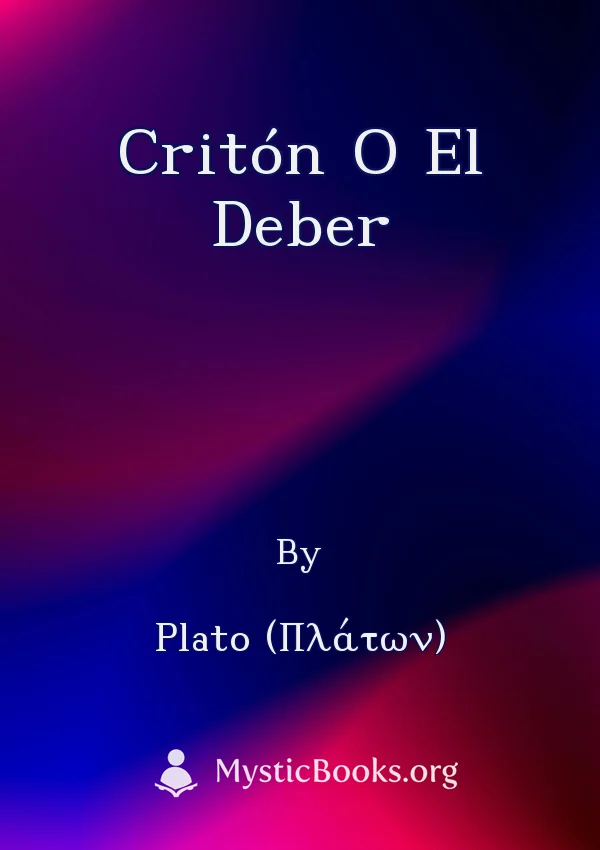
Critón o el deber
'Critón o el deber' Summary
El diálogo "Critón" tiene lugar la noche antes de la ejecución de Sócrates. Critón, un amigo cercano, llega a la prisión para convencer a Sócrates de escapar. Critón argumenta que el filósofo está siendo injustamente condenado a muerte y que la fuga sería lo correcto, tanto para él como para sus amigos y familia. Sin embargo, Sócrates se niega. Argumenta que la ley de la ciudad es sagrada y que desobedecerla, incluso en caso de injusticia, dañaría el orden social y socavaría la propia virtud. Sócrates cree que el verdadero mal no es la muerte sino la injusticia. Su deber, afirma, es obedecer las leyes, incluso si estas le obligan a morir. A través de este diálogo, Platón examina temas como la justicia, la ley natural, la obediencia civil y la importancia de la razón sobre los deseos personales. "Critón" es un texto fundamental para entender el pensamiento de Platón y para reflexionar sobre la ética y la moral.Book Details
Language
SpanishOriginal Language
Published In
Genre/Category
Tags/Keywords
Authors
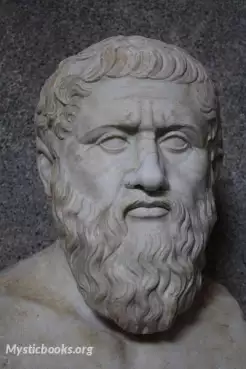
Plato (Πλάτων)
Greece
Plato ( Classical Attic; 428/427 or 424/423 – 348/347 BC)) was an Athenian philosopher during the Classical period in Ancient Greece, founder of the Platonist school of thought and the Academy,...
Books by Plato (Πλάτων)Download eBooks
Listen/Download Audiobook
- Select Speed
Related books
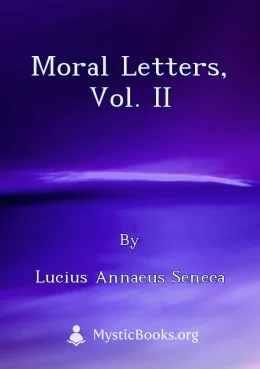
Moral Letters, Vol. II by Lucius Annaeus Seneca
Lucius Annaeus Seneca, a prominent figure in the early Roman Empire, penned these letters towards the end of his life, addressed to his friend Luciliu...

Hurlbut's Story of the Bible Part 1 by Jesse Lyman Hurlbut
Some years ago, the editor of an English magazine sent a communication to "the hundred greatest men in Great Britain" asking them this question: "If f...

Fuel of Fire by Ellen Thorneycroft Fowler
Fuel of Fire is a powerful and moving story about the destructive power of prejudice and the transformative power of love. Set in the Victorian era, t...

Vassar Studies by Julia Augusta Schwartz
Vassar Studies is a collection of twelve short stories that offer a realistic glimpse into the lives of students at Vassar College in the late 19th ce...
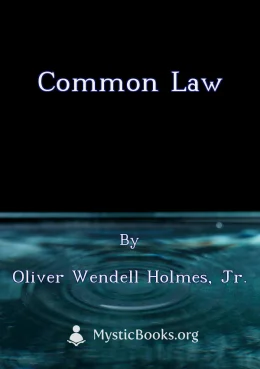
Common Law by Oliver Wendell Holmes, Jr.
Published in 1881, *The Common Law* by Oliver Wendell Holmes Jr. is a seminal work of legal philosophy and a foundational text for understanding the e...
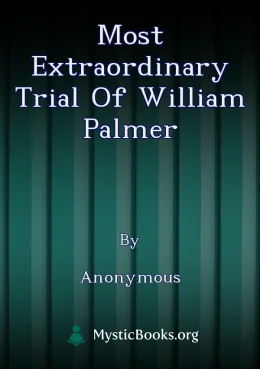
Most Extraordinary Trial of William Palmer by Anonymous
The Most Extraordinary Trial of William Palmer, a true crime account, delves into the 1856 trial of Dr. William Palmer, a physician accused of poisoni...
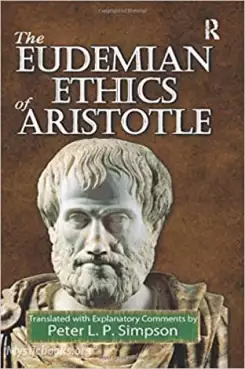
Eudemian Ethics by Aristotle
The Eudemian Ethics is a work of philosophy by Aristotle. Its primary focus is on ethics, making it one of the primary sources available for study of...
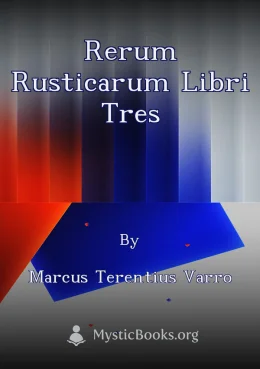
Rerum Rusticarum libri tres by Marcus Terentius Varro
Marcus Terentius Varro's *Rerum Rusticarum libri tres* (Three Books on Farming) offers a comprehensive and insightful examination of Roman agriculture...

Sonnets of John Keats by John Keats
This book presents a selection of sonnets by the English Romantic poet John Keats. It offers a glimpse into Keats's poetic mastery and his exploration...
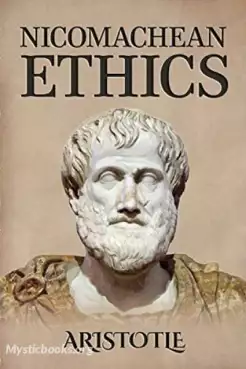
Nicomachean Ethics by Aristotle
The Nicomachean Ethics is the name normally given to Aristotle's best-known work on ethics. The work, which plays a pre-eminent role in defining Arist...
Reviews for Critón o el deber
No reviews posted or approved, yet...